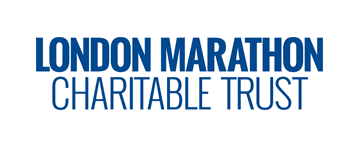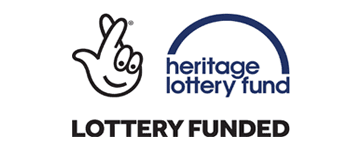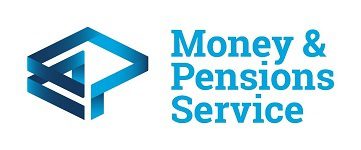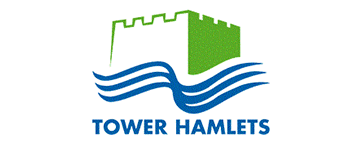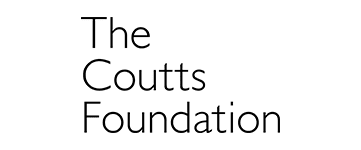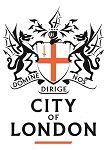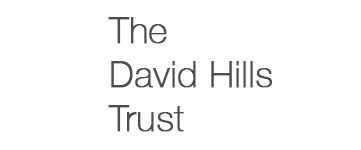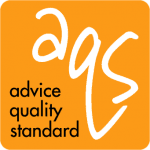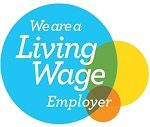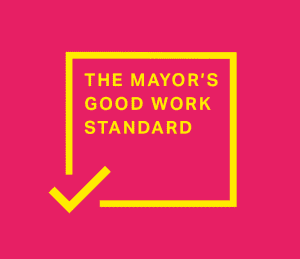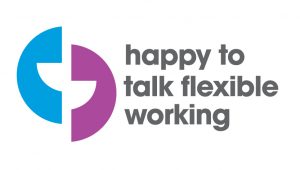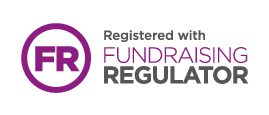Cost of Living Guide



How to maximize your income
You can donwload this complete guide here
Does It feel like everything is going up except for what’s coming in? Are you worried that your money is not stretching far enough?
While there’s no magic fix to the Cost of Living Crisis, this guide can help you maximise your income by claiming your full benefit entitlement and help you find any support you might be eligible for. We can also point you in the direction of our free advice services, which may be able to help you with any issues you’re currently experiencing.
Here are 8 ways you can maximise your income:
1. Are you getting your full benefit entitlement?
There are lots of benefits that go unclaimed. The first step to maximize your income, is to see if you are claiming your full benefit entitlement. Here are some typically underclaimed benefits:
• Personal Independence Payment
• Attendance Allowance
• Carers Allowance
• Pension Credit
• Council Tax Reduction
You can check this using the Turn to Us Benefit Calculator.
Check if you’re eligible for Universal Credit
If you’re on low income, out of work or cannot work you may be eligible for Universal Credit. However, if you are getting legacy benefits, you may not be better off so get advice before changing. Check if you are eligible for Universal Credit.
Extra money available for carers
You could get £69.70 a week if you care for someone for at least 35 hours a week and they get certain benefits. You do not have to be related to, or live with, the person you care for.
Pension Credit for those on low income
You could get extra money to help with your living costs if you’re over State Pension age and on a low income: even if you have savings or own your own home.
Get help from Toynbee Hall
If you live in Tower Hamlets, The Toynbee Hall Welfare Benefits Form Service can help you with benefit applications. We will help you complete navigate the benefits system and help you complete the forms to ensure you get the benefits you’re entitled to.
This is an appointment only service. To book an appointment please:
Call 020 7392 2953 (Monday 2-4pm & Wednesday 10-12pm) or
email advice@toynbeehall.org.uk.
Please Note: This service is for Tower Hamlets residents ONLY.
2. You may be eligible for help with your energy costs
Cold Weather Payments
You may be able to claim an extra £25 extra a week if you’re getting certain benefits is available during the winter when the temperature is zero or below for more than seven days.
Cold Weather Payments are one-off payments to help you pay for extra heating costs when it’s very cold.
You’ll get a payment each time the temperature drops below a specific temperature for a set period of time. You’ll only be eligible for a Cold Weather Payment if you already get:
• Pension Credit
• Income Support
• Income-based Jobseeker’s Allowance
• Income-related Employment and Support Allowance
• Universal Credit
• Support for mortgage interest
If you’re eligible, you’ll get paid automatically. Find out more about Cold Weather Payments on GOV.UK.
Warm Home Discount
This autumn nearly three million low-income households are eligible for a £150 rebate on their winter electricity bills. Details of 2022-23 scheme not yet out.
You might be able to get £150 off your electricity bill or £150 added to your prepayment meter.
You don’t need to apply. If you’re eligible for the scheme, the Department for Work and Pensions (DWP) will send you a letter later this year.
For more information, go to: https://www.gov.uk/the-warm-home-discount-scheme
Winter Fuel Payments
In the winter months pensioners can get between £100 and £300 to help pay heating bills.
The Winter Fuel Payment is an annual one-off payment to help you pay for heating during the winter.
You can usually get a Winter Fuel Payment if you were born on or before 26 September 1955.
This year you’ll automatically get an extra £300 with your usual Winter Fuel Payment. You’ll get the payment in either November or December.
You should start getting the Winter Fuel Payment automatically once you reach State Pension age, but sometimes you might need to apply. You can find out how to apply for the Winter Fuel Payment on GOV.UK.
Grants to help pay off your energy debts
You might be able to apply for grants and schemes to help you pay your bills if any of the following apply:
• you’ve reached State Pension age
• you have a disability
• you have no income or a low income
• you’ve missed payments to your energy supplier
If you’re in debt to your energy supplier, you might be able to get a grant to help pay it off. The following energy suppliers offer grants to their customers:
• British Gas Energy Support Fund – apply for a grant on the British Gas Energy Trust website
• Scottish Power Hardship Fund – apply for a grant on the Scottish Power Hardship Fund website
• Ovo Energy Fund – apply for a grant on the Ovo Energy Fund website
• E.ON Energy Fund – apply for a grant on the E.ON Energy Fund website
• E.ON Next Energy Fund – apply for a grant on the E.ON Next Energy Fund website
• EDF Energy Customer Support Fund – sign up to the priority services register to apply for a grant on the EDF Energy website
• Bulb Energy Fund – apply for a grant on the Bulb Energy Fund website
• Octopus ‘Octo Assist Fund’ – apply for a grant on the Octopus website
Local Energy Grants
Check if you can get a local energy grant on the Simple Energy Advice website.
When you apply for a grant, you’ll have to provide detailed information about your financial situation in your application. It could take a while to complete, and it might be worth getting help from a friend or family member.
Get help paying your water bill
Talk to your water company as soon as you can. They might:
• let you spread your payments over a longer period
• move you to a cheaper contract
If you don’t speak to your water company, they won’t disconnect you but they might take you to court. You might end up having to pay court costs.
Most water companies have schemes to help you pay your bills – ask your water company when you speak to them. Here are some ways they may be able to help:
1. Flexible payment plans
Your water company can offer flexible payment plans (weekly, fortnightly or monthly) and in some cases can offer ‘payment breaks’ to help you through short-term financial difficulties.
2. Payment Breaks
Your water company can offer a payment break if you temporarily need to reduce or stop your payments for a limited time.
3. Water direct-paying via benefits
This scheme gives you the option to pay your water and sewerage charges through your welfare benefits if you are already in debt with your water company.
4. Trial a water meter
If you’re struggling to pay your water bills and you haven’t got a water meter, check whether having one installed will save you money.
You can also look at ways of using less water, and you should make sure you don’t have any water leaks that are making your bills higher than they should be.
If you’re having problems paying a water bill, talk to your water company as soon as you can. You might be able to spread payments over a longer period through a payment plan. Water companies accept a variety of payment methods.
This water meter calculator can help you work out if you might be better off switching to a water meter. Some households find they can cut their bills by hundreds of pounds. If your water company cannot fit a meter, you may benefit from an assessed charge.
5. Special Schemes
Many water companies run hardship schemes or fund independent charitable trusts which can help you pay your bills. You can find information about the different hardship schemes on the Consumer Council for Water website or you can ask your water company.
Reduce your bills – every water company has a social tariff scheme which can help reduce your bills if you’re on a low income. Who is eligible for help and the level of support varies depending on your water company.
Debt support schemes – ask your water company about its debt support scheme. These can reduce debt if customers stick to a payment plan. You will need to make payments against a pre-agreed payment plan set by your water company.
6. Financial Hardship Funds
See if your water company has a fund that can help you clear your debt. Grants can be awarded to help with water debt or other financial difficulties.
7. Bill cap scheme – Watersure
This scheme caps the water and sewerage bill of customers in receipt of income-related benefits who have a water meter, and either a large family or member of the household with a medical condition who uses lots of water. Eligibility rules apply.
Watersure is available through your provider. You can apply for WaterSure by filling out a form from your water company. Go to your providers website or search your providers name and Watersure
8. Help if you live alone
In the rare circumstances that you request a water meter but your water company is not able to fit one, they must give you the choice to switch to a fixed single occupier tariff. If you stop living alone, you would no longer be eligible for this tariff.
3. Discretionary Housing Payments
In some instances, money is given each year to help people who have trouble paying their rent and may need further financial assistance. These are called discretionary housing payments.
A discretionary housing payment (DHP) is money from your council to help if:
• You are struggling to pay your full rent
• You do not have enough money for a deposit or rent in advance
This is not part of the normal housing benefit scheme and there is an overall limit set by central Government on the amount that council can spend each year.
Discretionary housing payments: important things to know
You cannot get discretionary housing payments unless you are already getting housing benefit or Universal Credit (which includes housing costs).
Discretionary housing payments cannot be given for items which are not eligible for housing benefit or Universal Credit (which includes housing costs).
If you are already getting the maximum housing benefit or Universal Credit allowable you cannot get discretionary housing payments.
Am I entitled to a discretionary housing payment?
Payments are made at the discretion of your local council. There are no rules that give anyone a right to payment, but we may be able to pay a discretionary housing payment if we believe you need extra financial support. They may be used for to pay for:
• reduction because you have more bedrooms than a family of your size needs
• reduction because the amount of benefit you receive has reached the benefit cap amount of £442.31 per week (£296.35 per week if you are single with no dependants)
• restrictions when your rent charge is higher than the Local Housing Allowance rate for your family or the Rent Officer has restricted the amount of rent that can be taken into account when working out your housing benefit
• the presence of a non dependant in your household which has reduced your housing benefit
• the presence of a non dependant in your household which has reduced your housing benefit
• shortfall between your rent and housing benefit due to the level of your income.
The amount of the payment and the period for which it is given are at the discretion of the council, payments may be made weekly or as a lump sum. There is no right of appeal to the Tribunal Service if you disagree with the decision of the council but you can request that the decision be reviewed.
Find out how to apply for a Discretionary Housing Payment through your local council here.
If you are a Tower Hamlets Council Resident, apply here.
4. Council tax discretionary payments
If you still can’t afford to pay your council tax, You can ask your local council to reduce your council tax because you’re struggling. This is called a ‘discretionary reduction’.
You can apply for a discretionary reduction whether or not you’re getting Council Tax Reduction (CTR) – a different type of benefit. You can get CTR and a discretionary reduction at the same time.
If you’ve fallen behind with council tax payments, you can also apply for a discretionary reduction to pay them off.
You can find your local council’s website on GOV.UK – it should tell you how to apply for a discretionary reduction.
If the council’s website doesn’t say how to apply, contact them and ask for ‘a discretionary reduction under section 13A(1)(c) of the Local Government Finance Act 1992’.
Explain why you’re struggling and send the council evidence, for example:
• a copy of a letter from your doctor – if you’re ill or you have a disability
• a copy of a letter from your landlord – if you’re behind with rent payments
• a list of your income and spending each month – you can use this budgeting tool to help you make a list
Find out how to apply for a Discretionary Council Tax Payment here
5. Other ways to maximise your income
1. Unclaimed pensions
Some people may have worked in jobs in the past, paid into pensions and have not claimed them.
Use this service to find contact details to search for a lost pension. You can ask for contact details for:
• your own workplace or personal pension scheme
• someone else’s scheme if you have their permission
This service will not tell you whether you have a pension, or what its value is.
You need the name of an employer or a pension provider to use this service.
https://www.gov.uk/find-pension-contact-details
2. Increasing the level at which you pay National Insurance
From July 2022, employees who earn £36,600 or under (around 70% of workers) will pay less National Insurance. A typical employee will save over £330 a year. This means you can earn £12,570 a year completely tax-free. A 1.25% rise in National Insurance will be reversed from 6 November and the Government will axe a planned levy to fund health and social care.
3. Increasing your pay
The National Living and National Minimum Wage rates rose in April. Check your pay to make sure you are getting the pay rate you’re entitled to.
• There is to be a cut in basic rate of income tax to 19% from April 2023
4. Claim Marriage Allowance
Marriage Allowance allows you to transfer 10% (£1,260) of your personal tax allowance to your husband, wife or civil partner if you earn less than the personal tax allowance, which is usually £12,570.
Find out how to apply for Marriage Allowance
5. Get help with savings if you’re on a low income (Help to Save)
Help to Save is a savings account. If you’re entitled to Working Tax Credit or you’re receiving Universal Credit, you can get a bonus of 50p for every £1 you save over 4 years.
Find out more about Help to Save
6. Child Trust Funds
A Child Trust Fund is a long-term tax-free savings account for children born between 1 September 2002 and 2 January 2011.
You may hold an account but do not know the Child Trust Fund Provider, or if you have one or not. Find out if you have a trust fund.
Find out more about Child Trust Funds
7. Get help if you cannot pay your tax bill
Contact HMRC as soon as possible if you cannot pay your tax bill. They are here to help, and you may be able to pay what you owe in instalments, depending on your circumstances and what you can afford.
8. Get your benefit paid early
Most benefits can be paid early. This is known as a ‘short term benefit advance’.
A small amount will be taken off future payments to pay it back – usually for 12 weeks.
You can also ask for an advance payment of Universal Credit to help you while you’re waiting for your first payment. You can check how to get a Universal Credit advance payment. You can’t get a benefit paid early for:
• Housing Benefit
• Attendance Allowance
• Disability Living Allowance (DLA)
• Personal Independence Payment (PIP)
• Child Benefit
• Guardian’s Allowance
• Working or Child Tax credits
To ask for an advance, contact the DWP office that’s dealing with your benefit claim. You can find their contact details on any letter or email you’ve had from them.
6. Central Government Support
1. £150 energy rebate for those in council tax bands A-D
Paid by local council- if you have not received it, please contact your local council. You can find your local council here.
2. Energy bills support scheme
• The government will give every household in Great Britain £400 off their electricity bill. This is called the Energy Bills Support Scheme.
• You don’t need to do anything to get the money and you won’t have to pay it back. The £400 will be automatically added to your energy account over 6 months starting from October 2022.
You’ll get the £400 in 6 instalments starting from October 2022. You’ll get:
• £66 in October and November
• £67 in December, January, February and March
If you have an electricity meter and pay your bills every month or quarterly, your supplier will automatically take the amounts off your energy bill each month.
If you are on a Pre-Payment Meter
• If you have a prepayment meter, the £400 will be added to your meter or you’ll be given vouchers – the government will confirm how you’ll get the money nearer to the time.
Vouchers are going widely unclaimed and are not reaching many of the households who use prepayment meters. Only half expected number of the expected number of vouchers have been used so far.
If you are on a NON-SMART PREPAYMENT energy meter, make sure you claim your voucher. If you haven’t, or if you did but have since lost it, contact your energy supplier.
The government will also send you extra one-off payments if you:
• get certain benefits – for example, Universal Credit, PIP or Attendance Allowance
• are over State Pension age and get Winter Fuel Payments
You can get as many of these extra payments as you’re eligible for. You won’t have to pay tax on them and they won’t count as income when calculating your benefits. They are:
3. Cost of Living Payment
If you get benefits based on your income, low income benefits and tax credits
You may get a payment of £650 paid in 2 lump sums of £326 and £324 if you get payments of any of the following:
• Universal Credit
• income-based Jobseeker’s Allowance (JSA)
• income-related Employment and Support Allowance (ESA)
• Income Support
• Pension Credit
• Child Tax Credit
• Working Tax Credit
You will not get a payment if you get New Style Employment and Support Allowance, contributory Employment and Support Allowance, or New Style Jobseeker’s Allowance, unless you get Universal Credit.
If you have a joint claim with a partner, you will get one payment of £326 and one payment of £324 for your joint claim, if you’re entitled. Find out more about Cost of Living Payments.
You do not need to apply for these payments. You should get these payments automatically.
If you have had a message asking you to apply or contact someone about the payment, this might be a scam.
4. If you get a disability benefit
The government will automatically give you £150 in September 2022. You’ll get this payment if you get any of the following benefits:
• Disability Living Allowance
• Personal Independence Payment
• Attendance Allowance
• Armed Forces Independence Payment
• Constant Attendance Allowance
• War Pension Mobility Supplement
Eligibility
To get this payment you must have:
• been getting one of these benefits on 25 May 2022
• applied for one of these benefits by 25 May 2022 – you won’t get the payment until your claim is successful
You’ll get the payment from September 2022. Payments will be made to people who get a qualifying disability from DWP before payments to people who get a qualifying benefit from the Ministry of Defence.
5. If you’re over State Pension age and get Winter Fuel Payments
You’ll automatically get an extra £300 with your usual Winter Fuel Payment in either November or December.
You’re usually entitled to Winter Fuel Payments if you’re of State Pension age in the third week of September. The State Pension age is 66.
You should start getting the Winter Fuel Payment automatically once you reach State Pension age, but sometimes you might need to apply.
You can find out how to apply for the Winter Fuel Payment on GOV.UK
There is no need to apply for the scheme and you will not be asked for your bank details.
If you’re eligible, you’ll be paid automatically in the same way you usually get your benefit or tax credits. This includes if you’re found to be eligible for a Cost of Living Payment or a Disability Cost of Living Payment at a later date.
These payments are not taxable and will not affect the benefits or tax credits you get.
Report a missing Cost of Living Payment for a low income benefit
If you think you should have had the £326 payment, but you cannot see it in your bank, building society or credit union account, you can report a missing Cost of Living Payment here
6. Cap on Fuel Costs
From 1 October 2022 a typical household won’t pay more than £2500 a year for gas and electricity – for 2 years. This applies to all types of energy tariffs. The existing schemes to help with energy costs aren’t affected.
What is the energy plan for households?
• a typical household’s energy bill will rise to £2,500 a year from 1 October (from £1,971)
• the “energy price guarantee” will last two years
• this is not a limit on how much you will pay – your bill depends on how much energy you actually use
• before the announcement, typical household bills had been due to rise to £3,549 a year
• the plan applies to all households in England, Scotland and Wales; the “same level of support” will be available in Northern Ireland
7. Local Support
Your local council may be able to provide some cost of living support payments. Here are some local support schemes:
Tower Hamlets
Household Support Fund – This will provide cash grants of £100 or more to those identified as most in need.
Resident Support Scheme – This is designed to help residents who are either in or at risk of being in crisis or are in need of immediate help and have no source of financial support available to them.
Find out more about these payments
Tower Hamlets Food Support – Find out what food support is available in Tower Hamlets
Mayor of London Cost of Living Hub
The Mayor of London and the Greater London Authority (GLA) have launched a Cost of Living Hub. They may be able to help with your expenses, if you are in a financial crisis, support differeng groups of Londoners and help you find local support near you.
Mayor of London’s Cost of Living Hub
To find out what support is available in your local authority, find your local council here.
City of London
If you live in the City of London, you may be able to get support such as the Emergency Support Scheme, free school meals, Healthy Start vouchers, help with childcare costs or further discretionary payments.
Go to the City of London Cost of Living website to find out more ways you can get help.
8. Other Help Available
Help to pay your rent/mortgage
If you can’t pay your rent, explain the situation to your landlord straight away. They might give you more time to pay.
You might be able to get benefits to help with your rent, for example Universal Credit or Housing Benefit. You’ll usually get Universal Credit if you’re under State Pension age. You’ll usually get Housing Benefit if you’re over State Pension age.
Check if you are eligible for housing benefits.
Get help paying your mortgage
Support for mortgage interest
If you’re a homeowner, you might be able to get help towards interest payments on:
• your mortgage
• loans you’ve taken out for certain repairs and improvements to your home
• This help is called Support for Mortgage Interest (SMI).
• It’s paid as a loan, which you’ll need to repay with interest when you sell or transfer ownership of your home (unless you’re moving the loan to another property).
• You usually need to be getting, or treated as getting, a qualifying benefit to get SMI.
There’s no guarantee that you’ll get SMI for a mortgage or loan you take out.
What you cannot use SMI for
SMI cannot help you pay:
• the amount you borrowed – only the interest on your mortgage
• anything towards insurance policies you have
• missed mortgage payments (arrears)
Ask your mortgage provider for help – they might change the way you pay your mortgage. For example, they might let you make interest-only payments for a while.
If you’re behind with your mortgage payments
If you’re in ‘arrears’ – this means you owe money to your mortgage provider.
You need to contact your mortgage provider and agree a way to pay back what you owe. If you don’t, your mortgage provider might take you to court and try to take your home. They should only do this after exploring all other options with you.
Try to pay as much as you can, even if it’s not the full amount. Your provider can’t take you to court until you owe a total of 3 months’ worth of payments.
If you’re behind on your mortgage payments or in rent arrears, get in touch with Debt Free London for free, expert debt advice.
Debt Free London is a London-wide partnership of debt advice providers and can provide help you with any debt and money problems 8am-8pm, 7 days a week via telephone, video chat, web chat and WhatsApp.
Go to www.debtfree.london to find out more
Tax Free Childcare
You can get up to £500 every 3 months (up to £2,000 a year) for each of your children to help with the cost of childcare.
30 hours free childcare
Eligible working families in England with 3 and 4 year old children can receive 30 hours of free childcare a week.
15 hours free childcare
Families in England who have 2 year old children and are on certain benefits can get 15 hours of free childcare a week.
All families with children aged 3 and 4 can also access 15 hours of free childcare a week.
Claim back childcare costs
You may be able to claim back up to 85% of your childcare costs if you’re eligible for Universal Credit, with up to £646 back each month for one child or £1,108 for 2 or more children. Find out more.
Get help with health costs
You might be able to get help paying for NHS charges, for example:
• prescriptions
• dental treatment
• sight tests, glasses and contact lenses
• travel to NHS treatment
Check if you can get help with health costs on the NHS Business Services Authority website.
If you pay for regular prescriptions
If you can’t get help to pay for your prescriptions, you might be able to save money by buying a prepayment certificate.
You’ll pay a fixed price for either 3 or 12 months. This will cover the cost of all the prescriptions you need during that time. You can buy a prepayment certificate for unlimited prescriptions for:
• £30.25 for 3 months
• £108.10 for 12 months – you can pay this in 10 instalments of £10.81
You can buy a prepayment certificate on the NHS Business Services Authority website
Get help with your child’s school costs
If you’re on a low income or claim certain benefits, you might be able to get help with the costs of sending your children to school. You could get:
• free school meals
• free transport to school
• a grant to help to buy school uniforms
Get help with travel costs
Contact your local council to check if they offer free or discounted travel – for example, if you’re:
• in education
• on a work placement
• unemployed and looking for work
• a veteran
• If you’re over State Pension age, you can apply for an older person’s bus pass on GOV.UK.
• If you’re 60 or over and live in a London borough, you can get free travel on London’s transport service. You can apply for a 60+ London Oyster photocard on the TFL website.
• If you’re disabled, you might be able to apply for a bus pass or railcard. You can check if you can get help with the cost of transport.
If you have a child or are pregnant
You might be able to get a Healthy Start card to help you buy certain types of milk, infant formula, fruit and vegetables.
To get the Healthy Start card you must be at least 10 weeks pregnant or have a child under 4 years old. You must also be getting either:
• Universal Credit – but only if your household earns £408 a month or less
• Income Support
• income-based Jobseeker’s Allowance
• income-related Employment and Support Allowance – but only if you’re pregnant
• Pension Credit
• Child Tax Credit – but only if your household earns £16,190 a year or less
If you get Child Tax Credit, you can’t get the card if you also get Working Tax Credit – unless you get the ‘run-on’ payment. Working Tax Credit run-on is the payment you get for 4 weeks after you stop qualifying for Working Tax Credit.
With the Healthy Start card you’ll get:
• £4.25 each week from week 10 of your pregnancy
• £8.50 each week for children from birth to 1 year old
• £4.25 each week for children between 1 and 4 years old
• Free vitamins
Find out more about Healthy Start
Get help with materinity costs
You could claim a one-off payment of £500 to help towards the costs of having a child through the Sure Start Materinity Grant. Find out more.
LEAP replacement appliances
LEAP Appliances is an initiative to support fuel poor and vulnerable households through the replacement of old, inefficient fridges, freezers, fridge-freezers, washing machines, and cookers with modern, efficient alternatives. We are working with C Supplies to deliver these appliances. If there are any issues with the delivery or installation, please call them on 01903 930436.
Please note: LEAP appliances is a replacement scheme. Applicants must have an appliance to replace. Energy labels have now changed. Here is what you need to know:
• The scheme covers The City and Tower Hamlets. The scheme is being run by LEAP and below are links to information on qualifying criteria as well as types of goods available.
• Individuals can self-refer and then, if they pass the initial screening, there will be a home visit by a representative of LEAP.
• You need to be aware that the appliance has to be at least 8 years old. You can check household eligibility here.
You can apply here.
0% VAT on energy saving materials
It will be cheaper for you to install energy saving materials such as thermal insulation or solar panels with 0% VAT for the next five years, helping to improve energy efficiency in your home and keep heating bills down.
Find out more
Get help paying your mobile, phone or internet bill
Contact your provider and ask what they can do to help. They might agree to:
• reduce your bill
• give you more time to pay
• increase your data or download limit
• move you to a different contract
If your provider won’t help you, you might be able to switch to a different provider. If you owe money to your old provider when you switch, you’ll still have to pay the money you owe.
Find out more about switching to a different provider.
If you’re getting benefits
You might be able to get a cheaper deal called a ‘social tariff’. It depends which benefits you get and where you live.
Take a look at this list of social tariffs available
Get help paying your tax bill
If you’re struggling to pay your tax bill, you should speak to HMRC straight away. Explain your situation and ask them if you can spread your payments over a longer period.
You can call them on their income tax helpline.
HMRC income tax helpline: 0300 200 3300
How can we help?
Toynbee Hall offers a range of advice services that are free, impartial and easy to access. Find out how we can help you.
Contact us
If you have a question or need help and don’t know how to get it, please contact us and will do our best to point you in the right direction.




